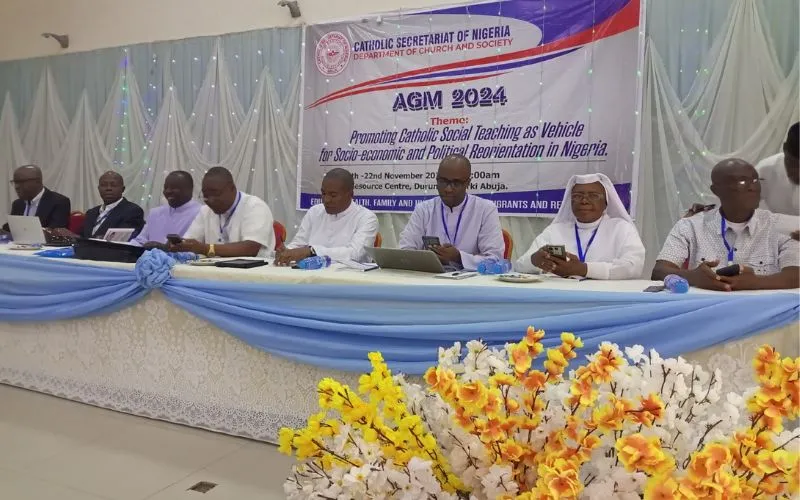He emphasized that the Church is inherently part of society and has a moral mandate to contribute to its transformation.
Highlighting the numerical strength of Nigerian Catholics, Fr. Obodoechina remarked, “We have over 40 million Catholics in Nigeria, 6,000 priests, and 87 bishops. Why can’t we move this nation forward? Why should we remain on the sidelines? Why are we not at the pressure points of power to influence politics and policies?”
The Nigerian Catholic Priest urged Catholics to utilize their influence to reshape Nigeria’s political narrative for the common good.
“Outside of God, the next most critical entity is government and power. Who influences the government? We must. And we can do so by applying the principles of Catholic Social Teaching,” he said.
Fr. Obodoechina clarified that while Priests cannot participate in partisan politics, they can evangelize the political space.
(Story continues below)
“As Clergy, we are not politicians, but we have the responsibility to evangelize. We can provide policymakers with the tools articulated in Catholic Social Teachings to guide their work,” he said.
He outlined methods for this engagement, saying, “It’s through influence, lobbying, advocacy, and soft diplomacy. Unless we actively engage, it will be difficult to change the narrative of our country.”
The Catholic official challenged the Clergy to maximize their influence in fostering political consciousness among their parishioners.
“The Parish Priest commands unparalleled respect in the parish environment. Every Sunday, thousands listen to him. What is he doing with this authority?” he said.
He pointed out that organizing a rally to attract a thousand people might cost political parties millions of Naira, yet a parish priest can gather the same number weekly without spending a dime.
“Imagine the aggregated influence of 6,000 Priests across Nigeria every Sunday. That is a powerful platform to start reshaping our society,” he said.
The Catholic Priest however cautioned against inaction, saying, “For too long, we have talked without acting. We attend meetings, drink tea, and go back to the same issues. The situation remains unchanged because we have not taken concrete steps to alter the governance structure in our country.”
Abah Anthony John is a Nigerian Journalist with great enthusiasm and interest for Catholic Church Communication and Media Apostolate. He holds a Bachelor's degree in Mass Communication from Benue State University, Makurdi, Benue State Nigeria. He has vast experience in Print, Electronic and Multi-Media Production.







